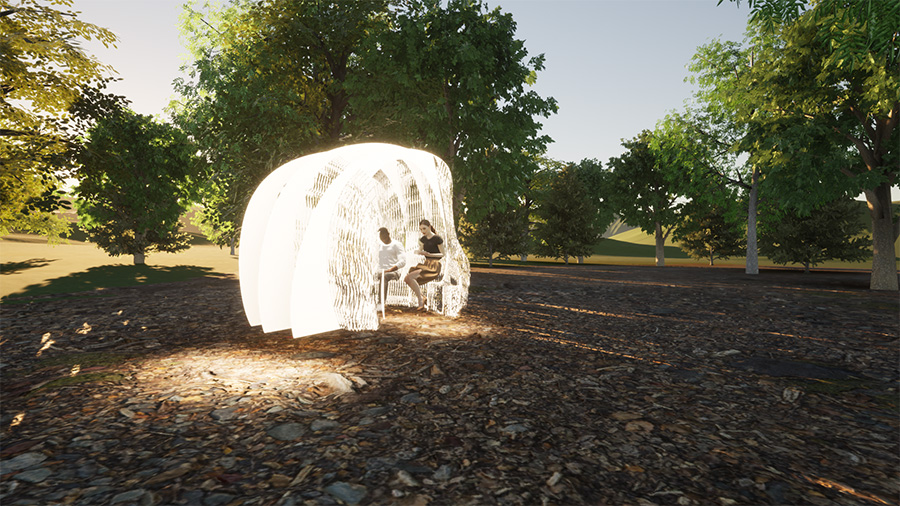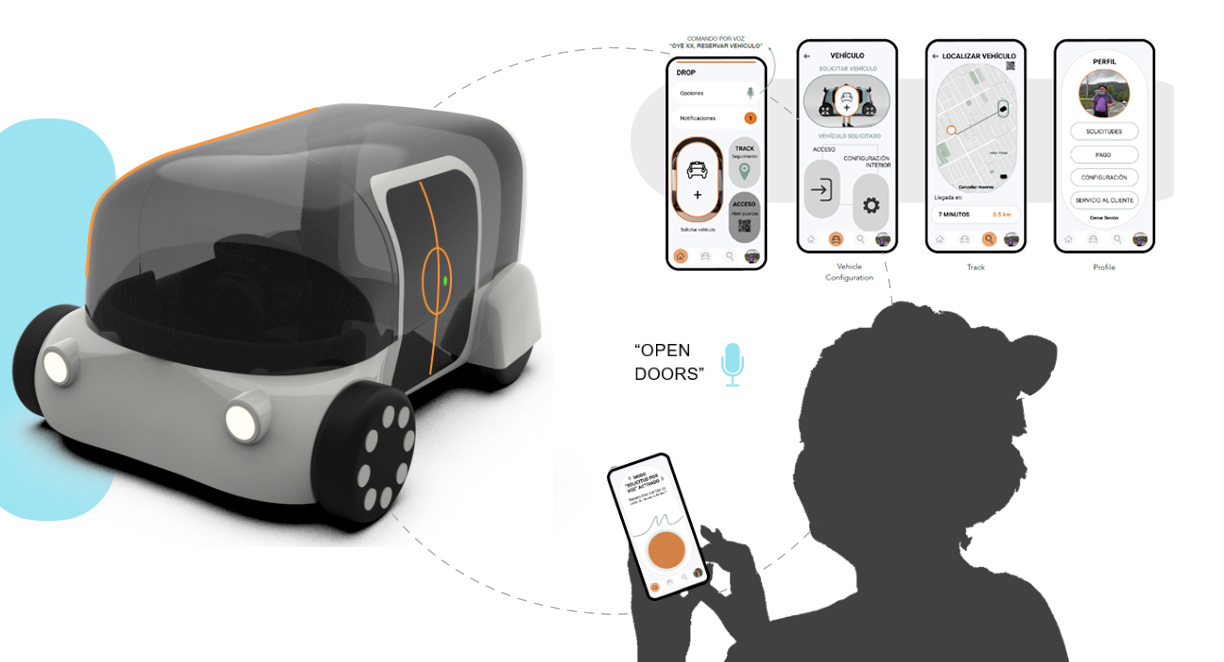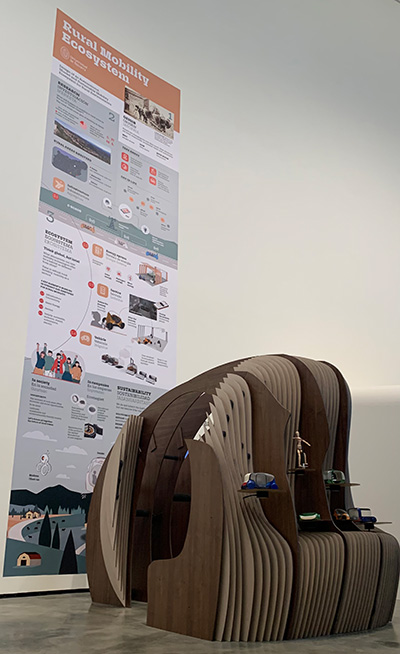Rural
Mobility
Ecosystem
Design of an autonomous, shared and sustainable ecosystem for rural environments.
01 ORIGIN
The history of mobility is the history of humanity itself. People are changing the way they move, facing challenges that demand new mobility solutions that are more responsible, accessible, smart and sustainable. Mobility that is accessible to all.
The key question to answer is:
WHYpeople move |
HOWthey move |
WITH WHOMthey move |
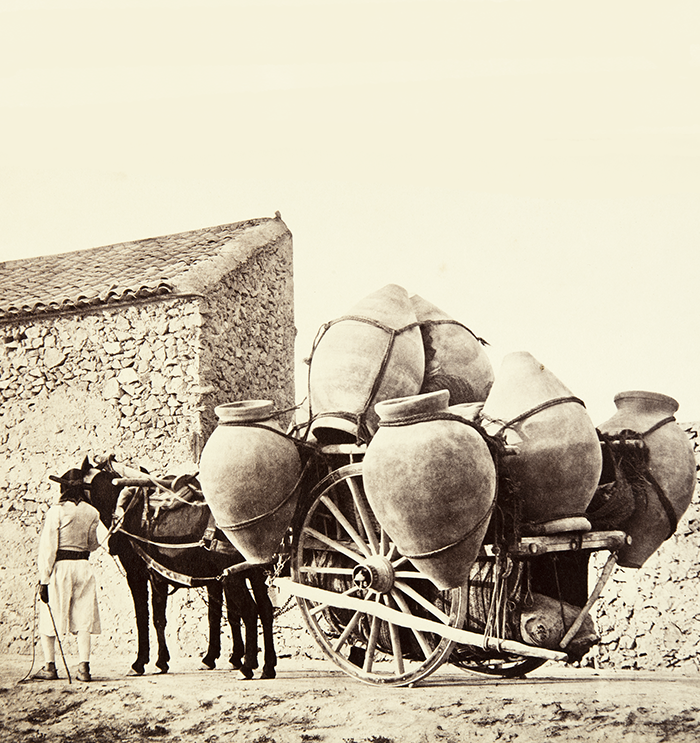
"Jean Laurent, Murcie-715-Charrette chargèe de tinajas ou cuves en terre (d'après nature). 1870" Museum of the University of Navarre
goalTrends
The past year has forced us to experiment with new solutions, and new experiences. It changed how we live and work, pushing as to remote working. As well as how and where we experience things. It made us rethink our priorities, having a greater focus on social commitment and environmental challenges.
The mobility to come will be a new shared, pay-per-use, inclusive, flexible, safe, decarbonized and interconnected service with the city and its inhabitants. Mobility as a Service is seen, Multimodality & Shared Transport, Autonomous Mobility & Digitalization, Safety&Inclusiveness, Adaptable.
02 RESEARCH
In Spain, 80% of the population lives in urban areas, meaning a depopulation of the rural areas. Rural areas do not have many mobility alternatives such as cities since public transport service is very scarce, as is its frequency. In addition, the needs of their inhabitants are very different.
The dependence on a private vehicle is then growing but some villagers are excluded, such as minors, elderly or people with special abilities, or simply those who cannot afford its cost. Therefore, they depend on family or friends for their trips to work or leisure.
What will happen to mobility in rural areas in the era of "Smart Cities"?
80% of the population lives in rural areas
20% of the population resides in urban areas

What about elderly, people with disabilities, children...?
User Analysis
During the field analysis, different types of users in these villages were interviewed. Where their journey and the problems and inconveniences they face in day-to-day life were analyzed.
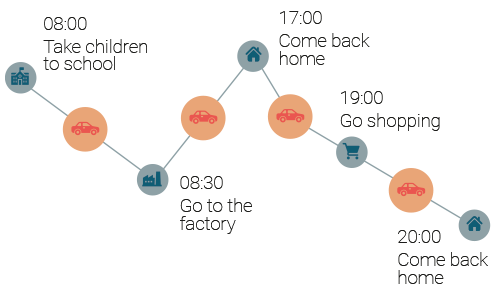
Takeaways
After the field research the obtained highlights are the following ones:
![]() Lack of public transportation and isolation
Lack of public transportation and isolation
![]() Very time consuming trips in day-to-day life
Very time consuming trips in day-to-day life
![]() Depopulation and ageing of the population
Depopulation and ageing of the population
![]() Strong dependence on vehicles in day-to-day life
Strong dependence on vehicles in day-to-day life
Service Analysis: Need of a digital management system (app/web platform) through which users access the service and where they can plan the journey in the 3 different stages: Before, during & after
03 PROPOSAL
Design of an autonomous, shared and sustainable ecosystem for rural environments.
Mobility cannot be reduced exclusively to proposals for new vehicles with different characteristics, but requires a more global thinking. For this reason, we propose a system that takes into account four main aspects: vehicle, infrastructure, energy systems and service, where the person is the centre of the whole ecosystem.
Think global, Act local
What alternatives can new mobility technologies offer for a habitat so different from cities?
Time to rethink rural mobility: mobility as a service
4 KEY ELEMENTS WORKING IN SYNERGY ARE IDENTIFIED FOR RURAL MOBILITY:

A. Vehicle: Accessible, Autonomous, Shared, Connected
B. Infrastructures: Connected, Reliable
C. Energy System: Sustainable
D. Service: Digital, Intuitive, Safe


Concept Vehicles
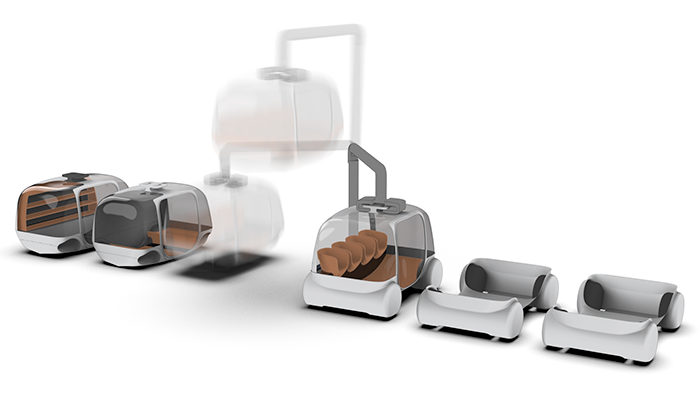
C1. Modular Type
Variations of vehicle structure to adapt to different needs
The main concept of the ideation is to adapt every vehicle to the needs of every user, by selecting and replacing a suitable module on the vehicles base module. The three main modules are: Supermarket Module, Passengers Module & Goods Module.
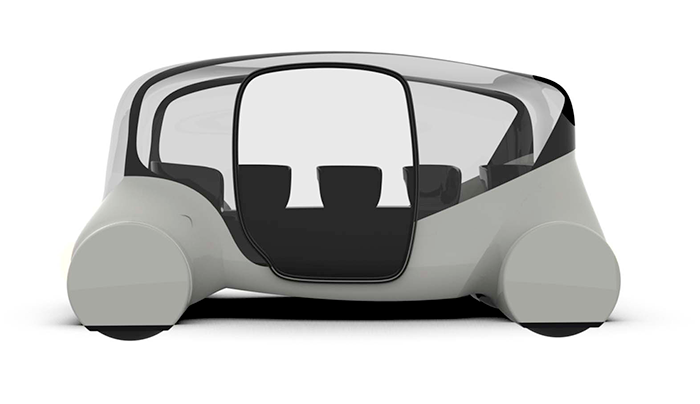
C2. Passenger Bus
The passenger bus has a symmetrical design, which allows it to move in both directions indistinctly.
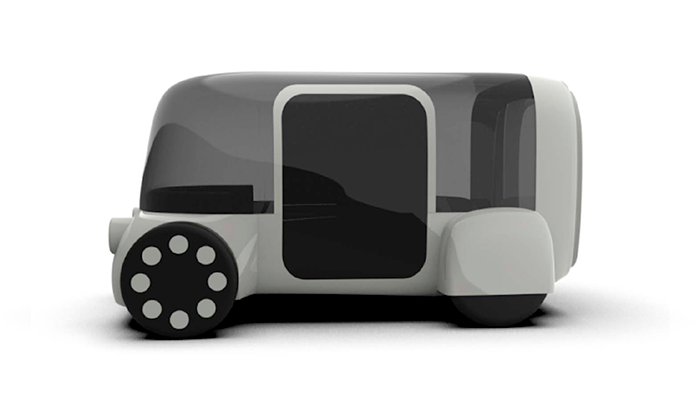
C3. Versatile Bus
The third concept car is a versatile vehicle adapted for both passengers and goods. Two separate part are B, a rounded front and a square back for parcels and goods.
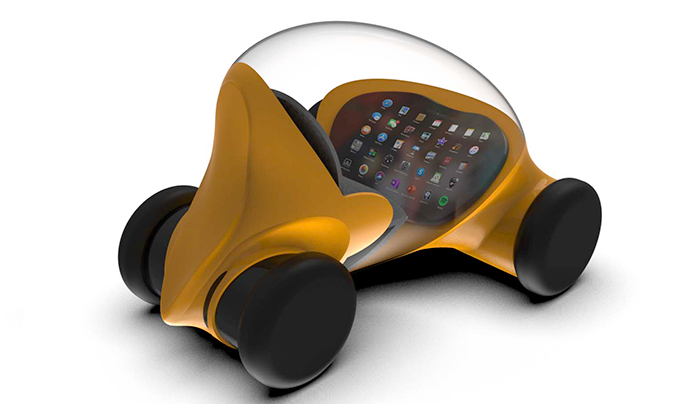
C4. Two - Seater
The two seater vehicle is designed for the mobility within the rural area.
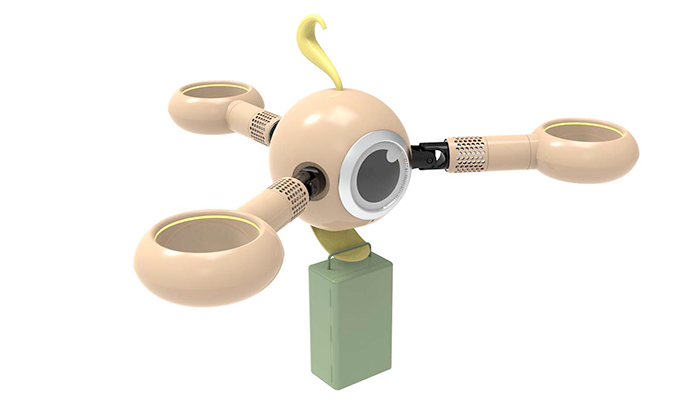
C5. Birdrone
Sustainable and autonomous drone that acts as an intermediary between the inhabitants of rural villages.
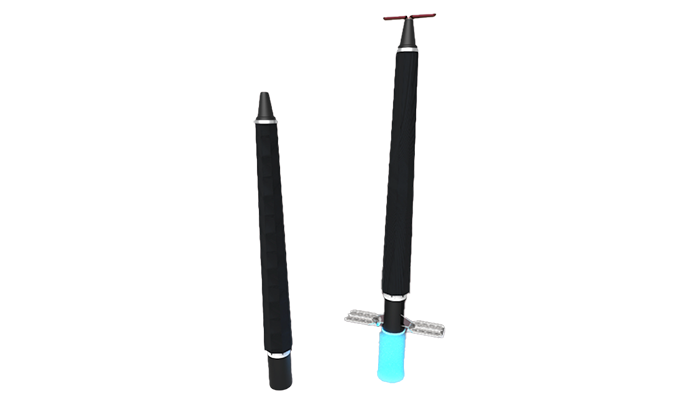
C6. Flying Scooter M.A.R.Y.
M.A.R.Y. stands for Mobility Artifact Repulsor Yaw. A stafftransportation system works with an all-new clean type of energy with zero emission to the environment. The device takes the form of an umbrella, making it a dual functional instrument: for travel and protection from the rain.
+INFO
C7. The Amoeba Design
Connected intelligent infrastructures through the use of advanced technologies such as Big Data, BIM, Machine Learning, Deep Learnig... that enable real-time interoperability.

AUTHOR Ceit
Sustainable energy that is used without compromising future generations in meeting their needs. An energy whose sources do not run out with its use. Sustainable energies
Solar Cells
The roof of the station is made of a innovative crystal that acts like solar cells
Green Walls
The walls are made with native plants
Inductive charging
The floor is equipped with a system that charges the vehicles that are above it without electric contact
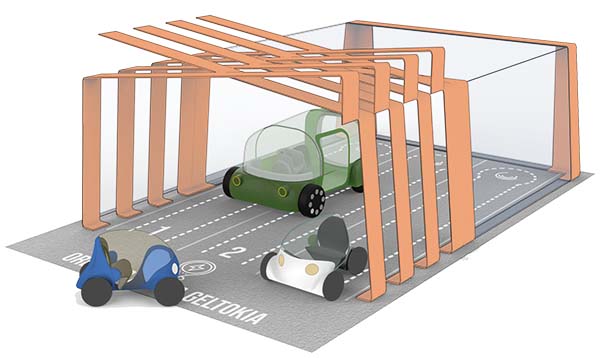
Mobility as a Service represents a real alternative to private vehicle travel, offering a great travel experience from the moment a person leaves home until they arrive at their destination.
04 SUSTAINABILITY
Sustainable Design of the Ecosystem
Solutions for rural mobility should master current trends regarding the protection of the environment since we do not inherit the Earth from our ancestors but we borrow it for our children. All elements of the ecosystem should be follow the R verbs:
REDUCE
The amount of materials and their environmental impacts
REUSE
Those elements of the ecosystem in alternative purposes (Ex. exhausted batteries from the vehicle for street lights or traffic signs)
RECYCLE
To manufacture new products
IN SOCIETY
The recovery of rural areas will offer economic and social opportunities that will move to a society that will be more inclusive, sustainable and concern about the environment. The opportunity now is to dream all together the future of rural towns by building a shared and a dynamic vision at all levels: demographic, social, cultural, environmental and democratic.
IN COMPANIES
After 8 years of development and intense work at CEIT, ECOMAGNET has arrived to reinvent the permanent magnet market with a technology that makes it possible to manufacture magnet powder from discarded magnets. Introducing a new sustainable economic model that contributes to the care of the environment.
Ecomagnet
05 EXHIBITION PROPOSAL
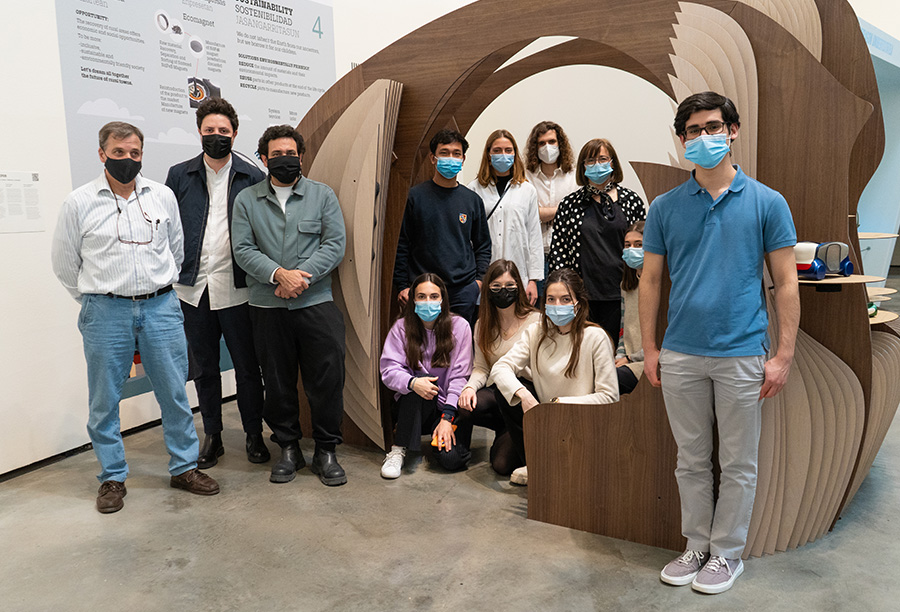
Mentors:Javier Antón Sancho, Paz Morer Camo
Team members: Aitor Cazón Martín, Fernando Manuel Alonso Pedrero, Romualdo Bertomeu Cubells, Álvaro Fernández Gil, Alaya Galán Ormazabal, Leire Gómez Olagüe, Iñigo Gutierrez, Jorge Izaguirre Goñi, Maria Isabel Rodríguez Ferradas, Lucía Ruiz Ullate, Juan Sola Belloso, María Fernanda Suazo Espinoza, Irene Ugidos Arias, Warren Dave Santiago Reyes, Ester Jové, Romualdo Bertomeu, Santiago Pérez and Jorge Izaguirre.
Full-scale model of the presented amoeba-shaped vehicle.
![]()
It is made of high-strength phenolic sheet material. It is composed of ribs and gills that go from one end to the other. These ribs are joined together with wooden discs glued with high performance sica.
The goalis to get the experiential part of the visitor to imagine what it would be like to travel on this transport subjectin the very distant future, while getting to know in detail the researcharranged in the infographic.


